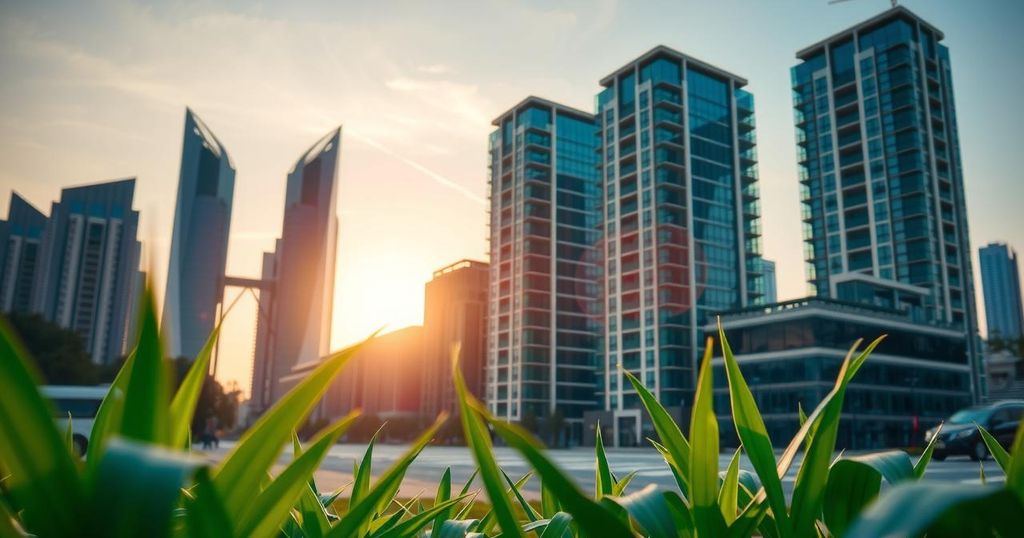Nigeria’s President Bola Tinubu assures citizens of steady economic recovery amid a cost-of-living crisis. Significant reforms have led to a 3.8% GDP growth in the last quarter of 2024. While inflation adjusts to lower rates, many face rising living costs, particularly in housing. Tinubu emphasizes future economic stability as a priority for 2025 budgeting.
President Bola Tinubu of Nigeria addressed the nation on Friday, affirming that the country is on a path toward economic recovery despite facing a prolonged cost-of-living crisis. The economic landscape has been challenging, largely due to the increase in inflation triggered by the removal of a costly fuel subsidy and the decision to allow the naira to float against other currencies.
Despite these difficulties, Tinubu insisted that significant economic reforms and discipline are yielding positive results. The signing of the 2024 budget, amounting to 55.99 trillion naira ($37 billion), coincided with the announcement that Nigeria’s GDP expanded by 3.8 percent in the last quarter of 2024, marking the most robust growth in three years.
The President cited his administration’s focused reforms, including a minimum wage increase and a rise in government revenues as positive indicators. He noted, “After the initial turbulence… the take-off was very cloudy and uncertain. Today, we see a light at the end of the tunnel.” This optimism comes as analysts cautiously acknowledge signs of price stabilization in the economy.
As Tinubu nears the midway point of his first term, he has emphasized macroeconomic stability and security in planning for the 2025 government budget. The government is optimistic about improved economic performance in the coming year, which is expected to be bolstered by higher domestic refinery output and a robust agricultural harvest.
Nigeria recently adjusted its inflation rate, revealing a decrease from 34.80 percent to 24.48 percent in January. Nonetheless, many citizens remain burdened by rising living costs. In Lagos, rental prices have surged by 100 to 200 percent in certain areas, creating significant financial strain as wages have not kept pace with inflation.
In conclusion, President Bola Tinubu of Nigeria remains optimistic about the nation’s economic recovery despite the ongoing cost-of-living crisis. Analysis of recent economic indicators reveals potential growth and stabilization, yet many citizens continue to face hardships, particularly regarding rising rent costs amidst wage stagnation. The government’s focus on macroeconomic reforms and budget priorities underscores a commitment to enhancing the economic landscape in Nigeria.
Original Source: newscentral.africa






